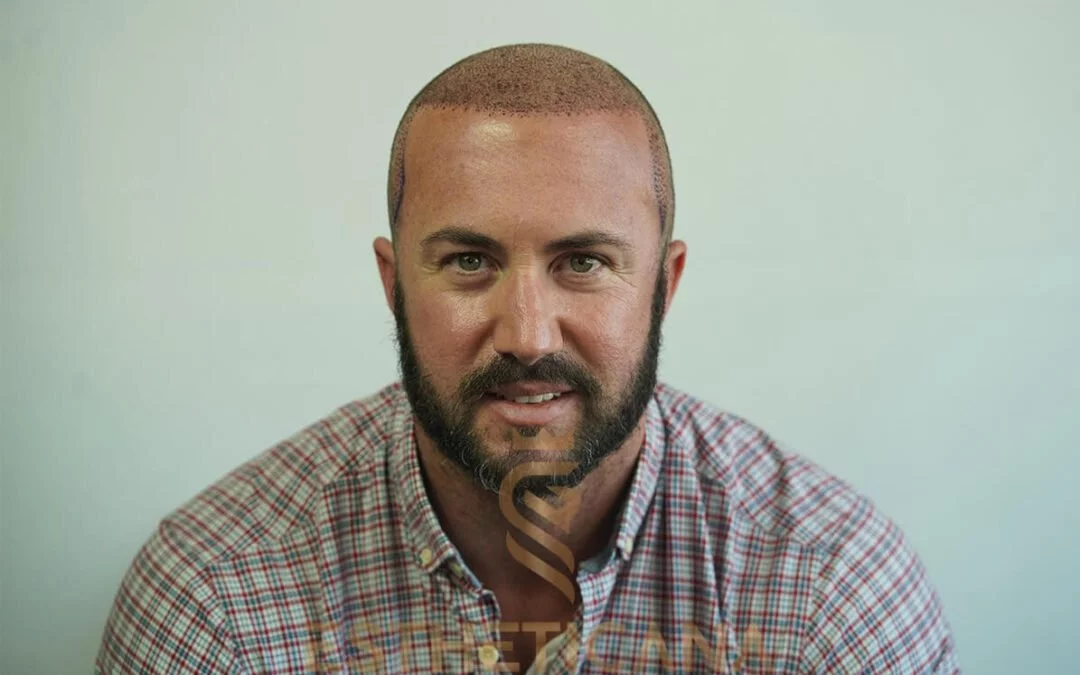

Scarring may occur in some hair transplantation operations. These scars are mostly seen in the donor area. Especially after FUT hair transplantation, a strip-shaped mark remains in the donor area. Some scars are small. This small scar can be covered by long hair. However, some scars are obvious. These need to be fixed. Many FUT and FUE hair transplantation scar repair operations have been performed in our hospital to date.
Hair transplantation can be performed on the scars with advanced hair transplantation techniques (Sapphire FUE, Micro FUE, DHI technique, etc.). This makes the scars invisible. Make an appointment with us for the correct diagnosis and treatment service.
Blood flow in scar tissue is less than in healthy tissue. Low blood flow means that the hair follicles cannot be fed adequately. Hair follicles need blood flow to survive. If the blood flow is not sufficient, the transplanted hair follicles may die.
The procedure of transplanting hair into scar tissue is successful in most cases. However, the success of the operation can vary from person to person. If the scar is too thick, not enough blood flows to the transplanted hair follicles. This can cause hair follicles to wear out and die. Although the scar tissue is very thin, the tissue may not be able to hold the transplanted hair follicles.
There may be scarring on the scalp for many reasons. Scarring may occur because of sports injuries, birthmarks, burn injuries or traffic accidents. Scarring may occur after a failed hair transplantation operation or after FUT hair transplantation, scarring may remain in the donor area. Usually, after the wounds heal, there is no hair in that area. If you want to have hair transplantation on the scar, contact us.
Make an appointment for hair transplant scar revision!
DHI technique is one of the most advanced techniques in hair transplantation. In this operation, surgeons carefully collect the hair follicles in the donor area. They transplant the collected grafts into the scar area.
** If you want scarless hair transplantation, we strongly recommend that you research the DHI technique. You can read this post to learn more about the DHI technique.
The scars on the scalp cannot be removed by hair transplantation scar repair or hair transplantation scar revision. The scars are covered. The hair follicles transplanted on the scar one by one cover the scar. In this way, the scar is invisible from the outside.
How to hide the scar depends on several factors. Factors such as the degree of healing, size, location, and color of scar tissue are some of them. The factor that the patient should pay attention to here is that he/she chooses the right hospital and surgeon.
Hair transplant scar revision before and after
There are 3 types of scars that patients have:
The hair transplantation scar can best be closed with a new hair transplantation operation. If you are not satisfied with the results of your previous operation, contact our experts for revision hair transplant.
It is the cheapest and easiest method. Many people use concealers that match their hair color to cover the mark or make their hair look bushier. This method offers you temporary results.
With scalp micropigmentation, the scars can be closed. You should remember that a micropigmentation application will not replace real hair and will not look natural like it.
It is especially used for FUT scars. In this surgery, the scar tissue is cut and removed. The wound is covered with modern sewing techniques. This time, the appearance of a seam mark is revealed.
In FUE hair transplant, hair follicles are collected from the nape area. After the operations performed by people with experience, point-shaped gaps may occur in the donor area. These gaps are due to the fact that the hair follicles are always taken from the same place. To close these scars in the most natural way, it is necessary to carry out a hair transplantation again.
These marks can also be closed through concealer products or tattoos. However, it is very difficult to achieve the desired natural results with these methods.
What is the cost of scar revision? For this, your scar must be evaluated by our specialists. Contact us for a personalized treatment plan. Let our specialist patient consultants and doctors provide you with the best treatment plan.
You can contact us to get information about hair transplantation in our clinic and to learn how you can benefit from this information. By having an initial consultation with Estheticana, you can send photos of the front, top, sides (right-left), and back of your head.
Our patient consultants are here to explain the procedure and prepare a treatment plan for your expectation. Fill out the form and our consultants will contact you shortly.
Scarring may occur in some hair transplantation operations. The…
Hair tansplant specialist is a person who takes the necessary t…
Hair loss or hair thinning is usually caused by hormonal or genetic reasons…
Copyright @ Estheticana.